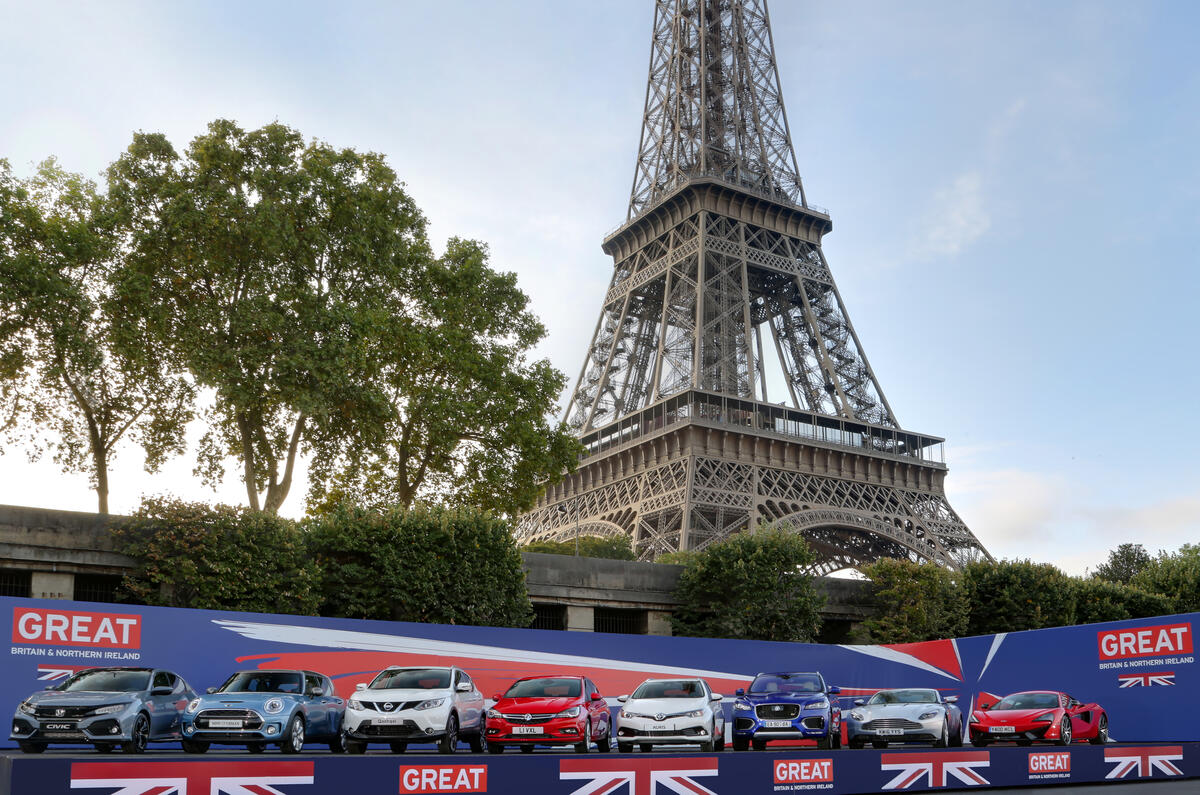Here's the scene: the UK motor industry holds an ever-so-slightly triumphalist photocall of British-made cars at the Eiffel Tower on the eve of the Paris motor show. The keynote speech is to be delivered by the UK's new under secretary for international trade, Mark Garnier.
The pictures are taken, the car industry's great and good foregather for speeches and canapés in a function room on the mighty tower's premier étage. A couple of the speeches from industry chiefs are familiarly themed: Brexit is the big concern.
We must be able to import technical talent, we need inward investment and above all, we must continue to be in the single market. Anything else will be a disaster. Everyone wonders what the minister will say. He rises - and to the surprise of almost everyone present, he starts talking about Autocar.
Few in the room are aware, so there is a surprised buzz when he lets it be known that his father, Peter, worked at Autocar (née The Autocar) for 25 years. He joined in 1950, was sports editor from 1955, and became editor from 1968 to 1975.
For a minute the minister charms the audience and beguilingly establishes his credentials with stories of being collected from school by his dad in a Ford GT40, and recalls his father's close friendship Graham Hill, with whose children he sometimes played as a child. Then we're into business talk in earnest.
First, Mark Garnier volunteers a few killer facts to show he knows what a vibrant industry he's dealing with. The car industry is responsible for 12% of all UK exports, he acknowledges, selling a remarkable 80% of what it makes abroad. It is also number one for foreign investment. Nine of the 11 Formula 1 teams choose to be based in the UK, and we all know why.
"We really, really understand how important this is," he tells his rapt audience, and insists that the Government also understands the leave vote was not what the sector asked for. "We know you need zero-tariff access," he tells them. "We know you need to be able to hire engineers from other parts of the EU."
Plans and promises of action are few, for the plausible reason that one does not reveal a negotiation before it's necessary. However, there are solid-sounding assurances that Great Britain "will carry on being great" despite it starting a new kind of trading relationship with its neighbours.
Later, away from the hubbub, the minister confides that as a 'remainer' he is very concerned about the effects of Brexit and that there is hard bargaining ahead. "We have to work out a mechanism for having some sort of seat at the table," he says. "But the other side hasn't shown its hand yet. We'll put a lot of time into working out what's in it for them before the talking starts."
It's about as far as he can go. Before our chat ends we touch on his previous career in classic Formula Ford racing, and how, if he had time, he'd like to build up to trying a friend's Lola T70, an exceptionally quick and valuable car. It's clear that, despite a lack of time, Mark Garnier carries the fire of the car-lover his belly.
It will all be very difficult, Mark Garnier asserts, but as much as we need access to their market, they will need access to ours. There will be tough times ahead, but Garnier surprises the sceptic in me by radiating both leadership qualities and optimism. I had been expecting to doubt him.
No victory is guaranteed, Garnier asserts, but this is the big one, and no effort will be spared.




Join the debate
Add your comment
Who holds the trump cards?
7% of EU exports are to the UK.
Oh, I forgot - we can use EU citizens living in the UK as bargaining chips - apart from the ones we need, like doctors and scientists, assuming they haven't taken the hint and b*ggered off already.
The UK car industry is not in a strong position.
Completely wrong Chris576
The U.K. Is is a huge net importer from the EU and they are hardly likely to want to reduce their sales to us by placing obstacles to trade with us. Remember any tariffs applied to UK gods into the EU would be met be reciprocal tariffs applied to all those shiny BMW's etc UK buyers spend a fortune on every year.
Many of those BMWs you
BMW could just move some of the jobs for EU models to the EU if tariffs are introduced, the argument of reciprocal tariffs is a lose lose for the consumer in the smaller market.
It almost sounds like the
Almost?
The cars that are made here like the Mini will be kept being built here and sold here, while their replacement will be built inside the trading block and maybe the old model sold their as a value brand, you remember like Lada use to be to FIAT when there was the USSR.